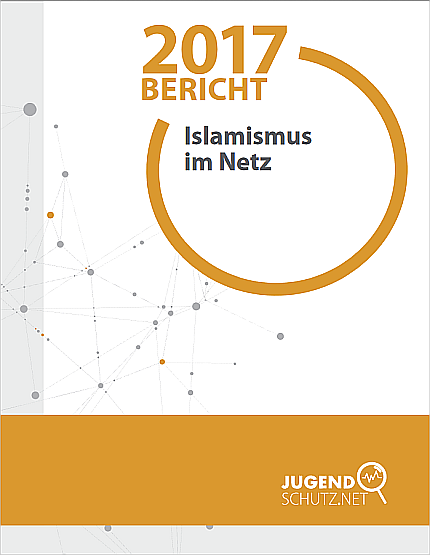Apps, Emojis, Memes: How Islamists Recruit Children on Social Media
Jihadists as heroes in video clips, calls for terror attacks in memes, children as target group of apps of the "Islamic State": Islamists appeal to younger and younger users via the net. As the current situation report on Islamism on the Net by jugendschutz.net shows, they spread their messages on services like YouTube and Instagram, which play a central role in the media world of children and young people. Emojis, which are popular when chatting, are also used in a targeted manner.
"Islamist propaganda targets youth cultures and picks up kids where they move every day: in social media", says Stefan Glaser, deputy head of jugendschutz.net. "Hate and violence do not always jump out at you. Many offerings subliminally incite inhuman and anti-democratic attitudes." Glaser calls for the operators of platforms with a wide reach to be held accountable not only for deleting terrorist content, but also for proactively protecting children and young people.
"Children and young people have a right to carefree participation in digitally networked life. All children and young people should be able to recognize anti-democratic content online and learn how to deal with it", emphasizes Federal Family Minister Dr. Franziska Giffey. "The Federal Ministry for Family Affairs therefore supports players who help children and young people in word and deed when dealing with online content and who strengthen democracy and diversity online", Dr. Giffey continues.
Thomas Krüger, President of the Federal Agency for Civic Education, sees a great need for innovative concepts for political education. "Educational professionals need information and up-to-date practical modules so that they can support young people in critically classifying Islamist propaganda." But the Internet community also needs to set the tone. "Users who get involved and permanently fly the flag against hate and violence online are a very important signal for a free and self-determined society - also on the Internet."
In 2017, jugendschutz.net documented 786 cases (2016: 651) with over 1,547 violations (2016: 1,497) in the topic area of Islamism. In most cases, signs of unconstitutional organizations, for example from the "Islamic State", inadmissible depictions of violence and scenes violating human dignity, e.g. execution videos or the presentation of killed people as trophies, were disseminated.
The 2017 Situation Report on Islamism on the Internet by jugendschutz.net can be downloaded at www.hass-im-netz.info/Bericht2017.
About jugendschutz.net
As a joint competence center of the federal and state governments for the protection of minors on the Internet, jugendschutz.net researches dangers and risks in youth-related services. The center urges providers and operators to design their offerings in such a way that children and young people can use them without worry. As part of its work on political extremism, jugendschutz.net researches Islamist offerings on the net. The section is funded by the Federal Ministry for Family Affairs, Senior Citizens, Women and Youth as part of the federal program "Demokratie leben!".
More on the topic

